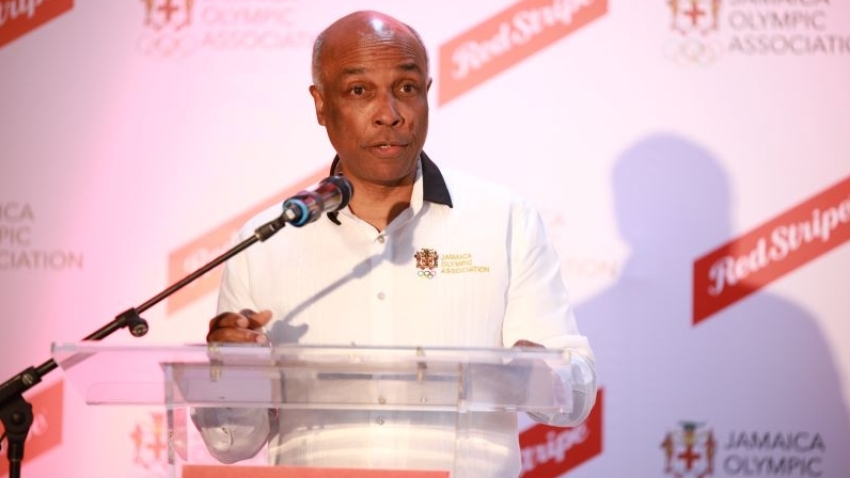Jamaica Olympic Association (JOA) president, Christopher Samuda, welcomed a recent move by the International Olympic Committee (IOC) to accommodate athletes’ freedom of expression, albeit with certain restrictions, during the 2024 Olympic Games in Paris.
Though athletes have frequently used the Olympic stage to make statements through boycotts and protests, the IOC in a bid to not only protect the Games integrity, but also to strike a balance between freedom of expression and maintaining a respectful and competitive environment, has set out the places and forbidden topics where competitors will be able to express their opinions.
At the Paris Games, athletes will be able to express themselves freely in all but five moments –the opening and closing ceremonies, the medal ceremonies, during competition and during their stay in the Olympic Village.
As such, the mixed areas where they interact with the media, press centres, press conferences, interviews, team meetings, traditional or digital media, social networks and pre-competition moments, such as call room and athlete presentation, will be the appropriate places for athletes to defend their points of view, but still under certain conditions.
For Samuda, the move represents a step in the right direction in the current era.
The Tokyo Games opened the door to the expression in the Olympic environment, which had been completely banned at previous editions. This, as players from the women’s football teams of Great Britain, Chile, United States, Sweden, and New Zealand knelt on the pitch before some matches to protest against racism.

“The decision of the IOC to give a voice to athletes in designated spaces at the 2024 Olympic Games is laudable. The recognition of the inalienable right to freedom of expression which, notwithstanding, must be exercised responsibly so as to safeguard the integrity and reputation of the Games, which is of immense brand value to athletes, and importantly, to protect sport, which creates a meaningful livelihood for athletes and stakeholders,” Samuda told SportsMax.TV.
“Giving athletes a voice to articulate their viewpoints in spaces including the mixed areas where they will interface with the media, and also in press conferences, centres and interviews, as well as team meetings and traditional and new media, demonstrates athlete centricity on the part of the IOC,” he added.
Among the restrictions placed on athletes is the fact that they must respect the basic principles of Olympism, and refrain from attacking individuals, organisations or countries. Athletes are also expected to follow the instructions of their Olympic committee or federation, and avoid disruptive behaviour.
Disruptive behaviour in this case, could be making comments during the presentation or anthem of other athletes, or displaying a flag or banner at that moment.
According to rules published by the IOC, failure to comply with these rules may result in disciplinary action proportionate to the offence.
This, Samuda believes is a responsible stance by the IOC, as with the conferment of a right comes responsibility and therefore, athletes in their expression must also adhere to the IOC rules and guidelines.
“A very reasonable position which I have no doubt will be subject to further refinement as sport evolves globally, and the imperative to protect its integrity becomes more acknowledged in the interest of athletes and their livelihood,” Samuda reasoned.
“Capital and stakeholder satisfaction prefer a risk free and regulated environment in which to thrive. So, striking a balance between liberty to speak and the responsibility of remaining silent provides a safe haven for viable return on investment and engagement,” he ended.







 and then
and then